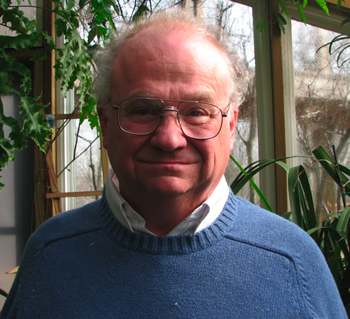12:00 pm,
Friday,
October 29, 2010
Newcomer Center, Room 19
Faculty Workshop with Craig Nelson: "Fostering Critical Thinking"

Craig Nelson's story:
When I began teaching, I prepared good (occasionally great) lectures. When the students didn't really get the material I assumed that there was something wrong with the students (under-prepared, not-really studying much, etc.).
Serendipitously, I was introduced to key findings from the Scholarship of Teaching and Learning that show that standard university teaching is often ineffective, even
when the students are working reasonably hard.
Moreover, alternative approaches can lead to large increases in student success (D, F and W rate for African Americans falling from 60% to 4% without lowering standards; Calculus and Economics with no Fs; double or triple learning in physics; etc.).
Time: noon-1:30 p.m. Place: NC 19
Sophistication in thinking is prerequisite to many of the goals of liberal and professional education, including critical thinking, mature valuing, effective communication, a responsible self, and collaborative interpersonal interactions. The basic question for faculty is: Why are sophisticated ways of thinking so difficult for students to acquire?
We will examine a major framework for fostering critical thinking: intellectual and ethical development (especially Perry; Belenky et al. and Baxter Magolda). However, help with cognitive frameworks is only half of our challenges as teachers. For most students, critical thinking is a deeply social enterprise. The most dramatic gains by far come with carefully structured discussion and other aspects of social dynamics (as will be discussed in my Thursday session).
An underlying theme will be that critical thinking can often be fostered best by increasing the ratio of support offered for a given level of challenge. Writing and peer discussion will help make sure that participants go home with new ideas that can be implemented in their classes immediately.
Background information:Dr. Nelson's Scholarship of Teaching and Learning focuses on the scholarships of synthesis and application (per Boyer and Rice). When he began working in this area, it was clear that the empirical and theoretical base for much improved college teaching was well already in hand. The major effort needed was in developing ways to apply this base in the classroom. He has worked to develop such applications and to help other faculty understand the empirical and theoretical base, the most feasible ways to apply it, and the importance of doing both.
He has been a Carnegie Scholar (Carnegie Academy for the Scholarship of Teaching) since 2001. He was named Outstanding Research And Doctoral University Professor Of The Year, 2000 by the Carnegie Foundation for the Advancement of Teaching and the Council for the Advancement and Support of Education (CASE) and received a Lifetime Contribution Award (for Vision) from the International Society for the Scholarship of Teaching and Learning in 2009.
Contact: Ross Peterson-Veatch, phone 7206, email rosspv@goshen.edu
